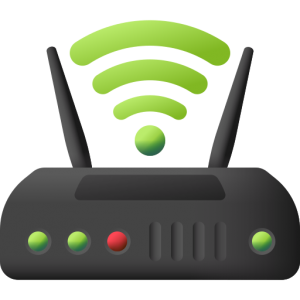Netgear Router Not Connecting to Internet
Experiencing connectivity issues can be one of the most frustrating aspects of modern computing, and for many, a reliable internet connection is as essential as electricity or running water. A common grievance that surfaces with home networks is when a Netgear router keeps dropping internet connection or, equally concerning, when a Netgear router won’t connect to internet at all. These issues can disrupt work, leisure, and the increasingly digital fabric of our daily lives.
This blog post will delve into the perplexing scenario where your trusty Netgear router suddenly becomes unreliable. Whether it’s the intermittent loss of connection, symbolized by the dreaded buffering symbol during your favorite show, or the complete inability to connect when you’re on a tight deadline, the impact is substantial.
We will explore the various factors that could cause a Netgear router to lose its grip on internet connectivity. Is it a matter of outdated firmware, an issue with the service provider, or perhaps a misconfigured setting within the router itself? Understanding the main causes is the first step towards a solution.
Moreover, for those facing the stone wall of a Netgear router that won’t connect to the internet at all, we’ll investigate the potential culprits. From hardware faults to temporary service outages, we aim to guide you through the troubleshooting process to get back online. Join us as we tackle these common yet challenging issues with practical advice and step-by-step guides to restore your connection and peace of mind.
Why Netgear Router Keeps Disconnecting and Reconnecting
The issue of a Netgear router that keeps disconnecting and reconnecting can be a source of significant inconvenience, disrupting everything from casual web browsing to critical online operations. This persistent problem often leaves users searching for a stable connection, as the router unpredictably drops and then re-establishes the internet link.
-
Netgear Router Intermittent Signal Interference:
One of the frequent reasons why a Netgear router keeps disconnecting and reconnecting could be signal interference. Devices like cordless phones, microwave ovens, and Bluetooth speakers can disrupt the WiFi signal when placed too close to the router.
-
Overlapping Netgear Router WiFi Channels:
The Netgear WiFi adapter keeps disconnecting if there are multiple WiFi networks in the vicinity on overlapping channels. This congestion can cause interference, leading to connectivity issues.

-
Netgear Router Outdated Firmware:
If the router’s firmware is not up to date, it may cause the Netgear router to experience instability, which manifests as frequent disconnections and reconnections.
-
Netgear Router Overload:
The issue could stem from having too many devices connected to the Netgear router, which can overload its capacity, causing it Netgear router keeps disconnecting and reconnecting as it tries to manage the bandwidth.
-
Netgear Router Dynamic IP Conflict:
Netgear routers and WiFi adapters can lose connection if there’s an IP address conflict within your network, often resulting from dynamic IP assignment issues.
-
Weak Netgear Router WiFi Signals:
A weak signal due to the router’s distance from the device or physical obstructions can cause a Netgear router keeps disconnecting and reconnecting as the signal strength varies.
-
Outdated Netgear Router Network Drivers:
For Netgear WiFi adapter keeps disconnecting specifically; outdated drivers can lead to poor performance and frequent disconnections from the WiFi network.
-
Power Saving Settings in Netgear Router:
Certain power-saving settings on your computer might be causing the Netgear WiFi adapter keeps disconnecting frequently in an attempt to conserve energy.
By understanding these common causes, users can better diagnose why their Netgear router keeps disconnecting and reconnecting, paving the way for effective solutions that we will explore in the following section.
How to fix Netgear not connecting to internet
To address the issue of your Netgear router being connected but not providing internet access, the following steps can be taken:
-
Restart Your Netgear Router:
Sometimes the simplest solution is the most effective. Disconnect your Netgear router from the main power source and wait for about one minute before reconnecting it. This can clear any temporary issues that may cause the Netgear not connecting to internet problem.
-
Check Netgear Router WAN Connection:
Ensure that the Wide Area Network (WAN) cable connected to your Netgear router is secure and the modem is functioning properly. A loose or damaged cable might be the reason your Netgear router is connected but no internet is available.
-
Update Netgear Router Firmware:
An outdated firmware can lead to connectivity issues. Log into your Netgear router’s admin panel and check for any available firmware updates. Upgrading your router’s firmware may resolve the Netgear not connecting to internet issue.
-
Factory Reset Your Netgear Router:
If the previous steps don’t work, try performing a factory reset. This will erase all the current settings that might be causing the Netgear router connected but no internet problem and allow you to set it up afresh.
-
Change DNS Settings in Netgear Router:
Sometimes, the default DNS servers may be slow or unresponsive. Changing the DNS settings in your Netgear router to public DNS services like Google DNS or OpenDNS can solve the Netgear not connecting to internet issue.
-
Check for ISP Outages in Netgear Router:
Contact your Internet Service Provider (ISP) to ensure there are no outages in your area that might be affecting your Netgear router’s ability to connect to the internet.
-
Inspect for Netgear Router IP Conflicts:
Check if there are any IP conflicts on your network that could be causing the Netgear router connected but no internet problem. Assigning static IP addresses to your devices can resolve these conflicts.
-
Adjust the Netgear Router MTU Size:
Incorrect Maximum Transmission Unit (MTU) size settings can lead to connectivity issues. Adjust the MTU size in your Netgear router settings to the optimal value recommended by your ISP to fix the Netgear not connecting to internet error.
By systematically going through these troubleshooting steps, you can resolve the issues causing your Netgear router to not connect to the internet and restore your online connectivity.
How to Prevent Netgear Router Not Connecting to Internet
To proactively prevent your Netgear router from encountering internet connectivity issues, consider implementing the following measures:
-
Regular Netgear Router Firmware Updates:
Ensure that your Netgear router’s firmware is always updated to the newest version. Regular updates can fix bugs and increase performance, reducing the likelihood of your Netgear router not connecting to internet.
-
Netgear Router Stable Power Supply:
Fluctuations in power supply can cause router malfunctions. Using a surge protector can safeguard your Netgear router and help maintain a stable connection, thus preventing issues where the Netgear router is not connecting to internet.
-
Optimal Netgear Router Placement:
Position your Netgear router in a central location, away from obstructions and interference-causing devices. Proper placement can enhance signal strength and reduce connectivity problems with your Netgear router not connecting to internet.
-
Netgear Router Network Security:
Protect your network with a strong password and the latest encryption standards to prevent unauthorized access that can cause bandwidth issues leading to your Netgear router not connecting to internet.
-
Regularly Reboot Netgear Router:
Schedule regular reboots of your Netgear router to clear memory leaks and refresh connections, which can prevent situations where your Netgear router is not connecting to internet.
-
Netgear Router Monitor Connected Devices:
Keep track of devices connected to your network. Too many devices can overload your network and cause connectivity issues with your Netgear router not connecting to internet.
-
Netgear Router Bandwidth Management:
Use Quality of Service (QoS) settings to prioritize traffic and manage bandwidth usage effectively. This can prevent network congestion that might result in your Netgear router not connecting to internet.
-
Netgear Router Environmental Factors:
Consider environmental factors such as large metal objects, mirrors, and electronic interference from microwaves or cordless phones that could impact Wi-Fi signals, potentially causing issues with your Netgear router not connecting to internet.
By adhering to these defensive measures, you can greatly reduce the risk of facing issues where your Netgear router is not connecting to internet, ensuring a more reliable and stable network experience.
Conclusion
In conclusion, navigating the complexities of network issues can be daunting, especially when your Netgear router keeps dropping internet or simply won’t connect to the internet. Such problems can disrupt daily activities and cause frustration. However, understanding that these issues are common and can often be resolved with troubleshooting steps is reassuring.
By systematically addressing the various factors that contribute to a Netgear router’s performance, from firmware updates to proper placement and security measures, users can often overcome these hurdles. It’s essential to recognize that technology is not infallible and that devices like routers require regular attention and maintenance to function optimally.
When you encounter a situation where your Netgear router won’t connect to internet, it’s an opportunity to review your network’s setup and make adjustments that could not only resolve the current issue but also enhance overall performance.
Ultimately, ensuring a stable internet connection requires a blend of proactive measures, regular maintenance, and a willingness to engage with the technology we rely on so heavily. So, next time your Netgear router keeps dropping internet, consider it a prompt to invest time in fortifying your network and preventing future interruptions. To know more about Netgear and to fix related issues please navigate to our Netgear Support page.
